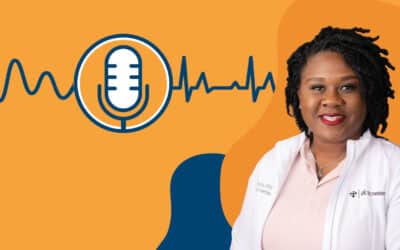This painless, easily accessed test costs only $100 and just may save your life.
Dr. R. Chance DeWitt, a Cardiovascular and Thoracic surgeon with Our Lady of Lourdes Heart Hospital in Lafayette, shares more about calcium score tests.
It almost seems Cajuns, Creoles and heart disease go together like rice and gravy. You would be hard-pressed to find a family in the region not touched by high blood pressure (hypertension), arterial calcium build-up/blockage, heart attack or stroke. The ages of those affected are as varied as gumbo recipes.
This may be the perception, but it doesn’t have to be our reality, even though we live in a region that created the fried, cheese-stuffed boudin ball and a king cake that is stuffed with boudin, sprinkled with praline pecans and drizzled with cane syrup. There are affordable tools at your fingertips to help you live a heart-healthy lifestyle that, in most cases, do not require a major shift in how you live. Among them is the calcium score test.
What is a Calcium Score Test?
Essentially, the test is a non-contrasted CT (computerized tomography) scan, which means no dyes are used. You just lay still during the scan. It looks at the severity of calcium deposits on arterial walls around the heart and helps the physician determine the level of heart disease.
A negative result does not rule out the possibility of coronary artery disease; but, paired with a negative stress test, would let you know there is very little need to worry. Positive results lead to further testing, which could identify areas of poor circulation (ischemia), and, depending on severity, an angiogram to assess the extent of blockage. Of course, more advanced cases would require surgical intervention, such as a stent or open-heart, bypass surgery.
Who Should Consider the Test?
Do you smoke, vape or use smokeless tobacco? Do you have a family history of heart disease? Do you have diabetes, or does it run in your family? These are all good reasons to consider a calcium score test.
Sometimes heart disease risk is out of your control. You could exercise, eat right and maintain a healthy weight, but still develop hypertension, have a heart attack or suffer a stroke. I have had patients who did everything right, but still needed a stent or bypass surgery.
The fact that they took such good care of their health for so long actually delayed this result, sometimes 10 to 15 years. We can control the risk with medication and routine monitoring, so there is no reason to throw in the towel and order the fried, stuffed pork chop with a loaded potato, extra butter.
Indications for a calcium screening test would include those ages 40-70 at an increased risk for heart disease but do not have symptoms. Also, those ages 40-70 with no family history of heart disease or diabetes should consider having the test done, even if it’s just for the peace of mind. If you have habits or a family history that pushes you into an elevated risk category, you may want to get the test at age 40 or, depending on the severity of the risk, even as young as 35.
How Do I Limit My Risk for Heart Disease?
Heart disease remains the leading cause of death in the nation for both men and women. It seems coronary and other forms of heart disease surface at younger ages in the Acadiana region. That may be related to a higher incidence of family history, it could be diet or both.
Eating a healthy diet, getting 30 minutes of exercise at least five days a week and maintaining a healthy weight are all proven ways to limit the risk and impact of heart disease. That’s not to say you can’t splurge, just do so mindfully. Limit it to one day a week.
On a Personal Note
The calcium score test scans the heart and gives limited views of the lungs, which saved my father’s life. He was near retirement at about age 65. I recommended he have the test because of our family history with heart disease.
While his score was mild, the physician found a pulmonary nodule, or an abnormal growth, in one of his lungs. If he did not have the nodule removed then, my father, now 75, would not be alive today.
How Do I Get the Test?
Your family doctor or cardiologist can order a calcium score test for you. There is no insurance pre-authorization required because it is a one-time, out-of-pocket expense of about $100. The test is painless, easy, readily available and it just may save your life.
Start by talking to your family doctor or cardiologist. Discuss your family history with heart disease and diabetes. Be honest about any potential risk factors you may have. You and your provider can work together to create a plan that’s just right for you.




